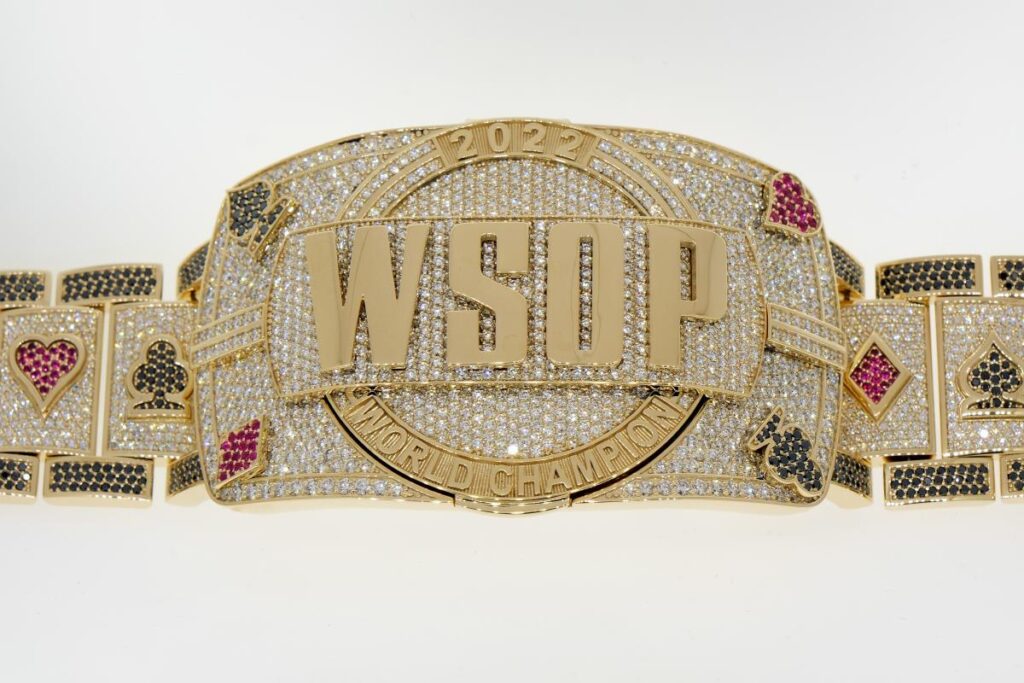Winning a World Series of Poker (WSOP) bracelet is the dream of many poker players. It’s a symbol of excellence and a career-defining achievement. But how does one actually conquer the massive fields and navigate the pressure to claim poker’s most coveted prize? We’ve got insights from a three-time WSOP bracelet winner to guide you on your path to poker glory. Winning a WSOP bracelet is an endeavor that blends meticulous preparation, smart Las Vegas navigation, and sharp in-game strategies.

The Grind Starts Before You Hit the Felt: Essential Preparation
Success at the WSOP begins long before you play your first hand.
Master Your Schedule and Trip Planning
Meticulous planning of your tournament schedule is essential. This means deciding which events to play each day, keeping buy-in levels in mind, and importantly, scheduling days off. You can use resources like a public Tableau schedule or Kenny’s schedule to explore tournament options across various Las Vegas venues, including WSOP locations (Bally’s/Paris), Aria, Venetian, and Bellagio. When making your selections, consider the tournament structure, rake, and what other events are running concurrently.
For players focusing on lower stakes ($100-$1,000 buy-ins), it’s crucial to study schedules to identify tournaments offering the highest Return on Investment (ROI). It might be more beneficial to play a $300 tournament with a higher expected ROI than a $1,500 event, especially if the latter stretches your comfort zone or bankroll. Creating an Excel sheet to map out your planned tournaments can significantly boost your win rate.
Bankroll Management: Fueling Your WSOP Dream
Proper bankroll management is critical, especially for those playing at lower stakes. If you’re playing for recreation, establish a trip budget. For professionals or aspiring pros, your tournament choices should align with your bankroll size and win rate. If you boast a strong win rate but have a smaller bankroll, selling action is a key strategy. Conversely, if you have a substantial bankroll as a mid-stakes player, you can comfortably take all your own action. Many players falter by not selling action appropriately or by failing to select a schedule where their ROI is highest. It’s often more advantageous to play tournaments you can afford with your own funds, where your ROI is higher, rather than entering higher buy-in events and selling a significant portion of your action.
Don’t Forget to Have Fun and Stay Flexible
Remember to schedule breaks and maintain flexibility in your plans. It’s important to avoid feeling like you are wasting your time.
Vegas Life Hacks: Optimizing Your Off-Table Game
Your experience in Las Vegas can significantly impact your performance.
Accommodation: Your Home Away From Home
Decide whether a hotel or an Airbnb better suits your trip. Hotels can provide flexibility and proximity to poker venues, which is particularly useful if you’re playing high roller events at locations like Aria in addition to the WSOP. Achieving status at Caesars venues (where the WSOP is hosted) could lead to discounted or even free stays. Booking your accommodation well in advance is highly recommended.
Getting Around: Transportation in Vegas
Consider renting a car, especially if you’re staying in an Airbnb or anticipate taking multiple Uber rides daily. Uber costs have risen significantly.
Money Matters: Prepare Your Finances
Manage your money preparation before your trip to steer clear of hefty fees (2-4% upon arrival, 1-3% upon departure). Explore options like obtaining a good credit card that offers free USD withdrawals or using platforms such as Skrill/Neteller if you have the necessary VIP status for greater flexibility.
Fueling Up: Food Strategies
Bringing your own food can be a great way to save money and maintain a healthier diet. Arranging for food delivery is another convenient option.
Crushing at the Tables: Tips to Skyrocket Your Win Rate
Beyond the logistical preparations, specific table strategies can give your win rate a significant boost.
Know Your Enemy: Identifying Your Opponents
Challenge yourself to identify the types of players at your table. You can categorize them broadly (e.g., very strong, strong, medium, weak, very weak) or use a more detailed approach that combines playing strength with style (e.g., aggressive, tight aggressive, loose passive). The expert source personally uses a granular method, assessing strength, style, and the extent to which opponents rely on intuition versus Game Theory Optimal (GTO) or studied play. The goal is to pinpoint their specific weaknesses and build a player profile. This identification process can begin by studying opponents beforehand (especially for high roller events, by reviewing live and online hands) or by keenly observing them during play.
The Power of the Positional 3-Bet
Using 2.5 to 3x 3-bets when you are in position (acting after your opponent on later streets) is described as a very potent weapon. These 3-bets are particularly effective against opponents who open with too wide a range of hands or, more commonly, open a decent range but then fold too frequently to 3-bets (for instance, folding 60-65% of the time). When an opponent folds this often, your 3-bets can become automatically profitable or close to it, depending on post-flop play. Having an edge in a heads-up pot while in position against a weaker player is considerably more valuable than being in a multi-way pot.
Winning a WSOP bracelet is a marathon, not a sprint. It requires dedication, smart planning, and sharp play. By incorporating these insights from a seasoned champion, you can significantly improve your chances of capturing poker’s ultimate prize. Good luck at the tables!
